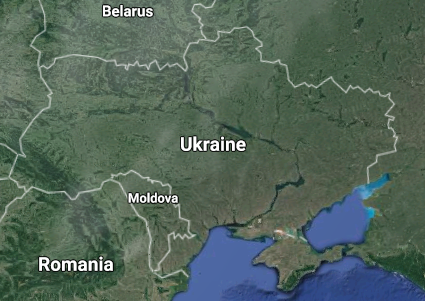
Six Transparency Steps Toward Better Extractives Governance in Ukraine

The Resource Governance Index results for Ukraine recently spurred constructive and proactive conversation about how to better the country’s extractives management at a parliamentary event in Kyiv. The index, released in June, ranked Ukraine’s oil and gas sector 44th among 89 country extractives sectors.
With two pieces of transparency legislation coming up in the country’s parliament—a draft law amending an accounting and financial reporting law and a draft law on ensuring transparency in extractive industries—I would like to share six transparency considerations that extractive industry stakeholders in Ukraine might consider as policy debates continue.
- Good governance requires a comprehensive approach. While Ukraine’s component scores for value realization were higher than those for revenue management and the enabling environment, these broad component scores can mask poor performance on specific issues. Ukraine’s comparatively high value realization score, for example, hides the fact that the country is failing on contract transparency and management of local impacts of extraction. The legislature should therefore ensure that future transparency reforms target the whole sector value chain and not just part of it.
- Reforms must target all public institutions, including state-owned enterprises. It can be dangerous to only focus reforms on government ministries and agencies, particularly in countries like Ukraine, where large state-owned enterprises play an important role in the management of natural resources. Naftogaz scored well in the index, which is encouraging. But scores also show that going forward it will be critical for the government to address state-owned enterprise opacity, especially around non-commercial activities.
- Move toward timely and ongoing reporting. A great deal of information about the sector in Ukraine and other countries is made available through annual Extractive Industries Transparency Initiative (EITI) reports. However, international best practice is increasingly moving toward ongoing data disclosures embedded directly into government platforms, as evidenced in EITI’s push for countries to “mainstream” extractives disclosures. Harnessing existing web portals to disclose data when it is ready allows for better and more timely public understanding. It can also save money that would otherwise be spent on creating lengthy reports.
- Disaggregate payment disclosures by project. So far, Ukraine has only disclosed payments at the company level. This means that if a company operates several projects, the payments it makes are lumped together and reported as an aggregate sum. While this kind of reporting is a step in the right direction, it still allows space for companies or governments to hide payments from individual projects, which can open the door to corruption risks. Best practice would be to incorporate EU directive 2013/34/EU—which provides rules on these practices taken up by EU countries, Norway and the U.K.—into Ukrainian law.
- Improve beneficial ownership disclosure. Ukraine has made important strides to disclose information on who ultimately owns and controls Ukrainian companies. These efforts need to be redoubled to ensure that disclosures are accurate and comprehensive. The 25 percent control threshold for reporting that stands in the current law is widely considered to be too high to capture many relevant beneficial owners in the extractive sector. For large extractives projects, even a 1 or 5 percent interest can give owners significant power while generating millions of dollars in rents.
- Disclose contracts. Extractive industry contracts signed between governments and companies are critical parts of the legal framework. They can contain several provisions that are in the public interest, including fiscal terms and social commitments. Full-text disclosure of these documents helps to build trust between the communities, companies and the government, and enables community members to help monitor compliance with the law. Where companies and governments agree to disclosure contracts in advance of reaching agreements, they draft more carefully. This means terms on which they agree are more likely to withstand public and commercial scrutiny. At least 39 countries have published contracts, including more than 50 percent of EITI countries. Ukraine could make important gains in this area by making it a requirement for all new contracts to be made public.
Rob Pitman is a governance officer at the Natural Resource Governance Institute (NRGI).
Authors

Robert Pitman
Senior Governance Officer